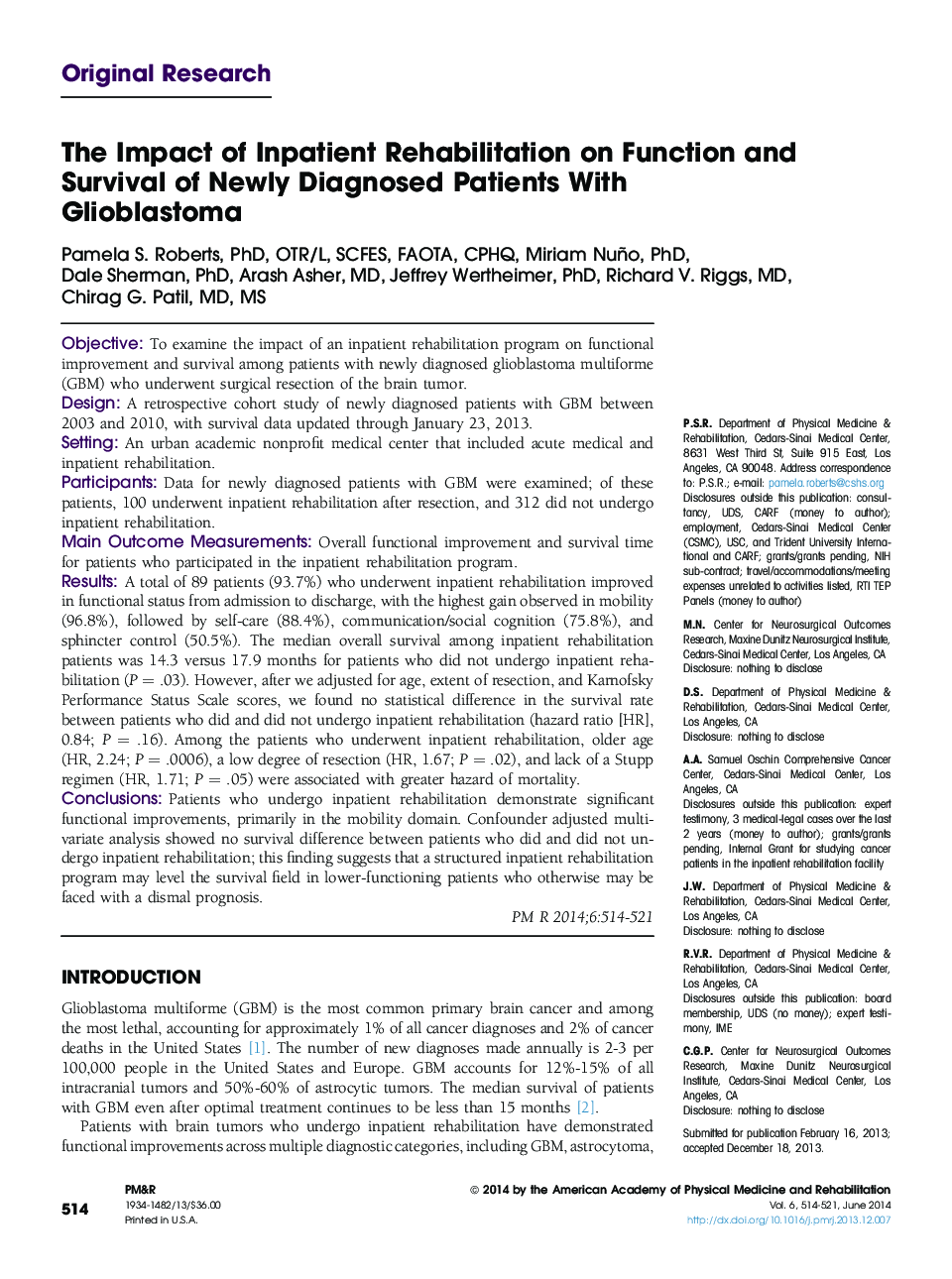| Article ID | Journal | Published Year | Pages | File Type |
|---|---|---|---|---|
| 2705622 | PM&R | 2014 | 8 Pages |
ObjectiveTo examine the impact of an inpatient rehabilitation program on functional improvement and survival among patients with newly diagnosed glioblastoma multiforme (GBM) who underwent surgical resection of the brain tumor.DesignA retrospective cohort study of newly diagnosed patients with GBM between 2003 and 2010, with survival data updated through January 23, 2013.SettingAn urban academic nonprofit medical center that included acute medical and inpatient rehabilitation.ParticipantsData for newly diagnosed patients with GBM were examined; of these patients, 100 underwent inpatient rehabilitation after resection, and 312 did not undergo inpatient rehabilitation.Main Outcome MeasurementsOverall functional improvement and survival time for patients who participated in the inpatient rehabilitation program.ResultsA total of 89 patients (93.7%) who underwent inpatient rehabilitation improved in functional status from admission to discharge, with the highest gain observed in mobility (96.8%), followed by self-care (88.4%), communication/social cognition (75.8%), and sphincter control (50.5%). The median overall survival among inpatient rehabilitation patients was 14.3 versus 17.9 months for patients who did not undergo inpatient rehabilitation (P = .03). However, after we adjusted for age, extent of resection, and Karnofsky Performance Status Scale scores, we found no statistical difference in the survival rate between patients who did and did not undergo inpatient rehabilitation (hazard ratio [HR], 0.84; P = .16). Among the patients who underwent inpatient rehabilitation, older age (HR, 2.24; P = .0006), a low degree of resection (HR, 1.67; P = .02), and lack of a Stupp regimen (HR, 1.71; P = .05) were associated with greater hazard of mortality.ConclusionsPatients who undergo inpatient rehabilitation demonstrate significant functional improvements, primarily in the mobility domain. Confounder adjusted multivariate analysis showed no survival difference between patients who did and did not undergo inpatient rehabilitation; this finding suggests that a structured inpatient rehabilitation program may level the survival field in lower-functioning patients who otherwise may be faced with a dismal prognosis.
